Today, web applications make our lives much more manageable. We order groceries and food delivery at a convenient time, buy clothes and various appliances online, communicate on social networks, and receive government services from the comfort of our homes. There are also advantages for businesses. Web applications allow them to automate most processes, solve business tasks faster and safer, attract new target audiences, and stand out among competitors.
This article discusses types of web applications, how a web application works, and how custom web app development takes place.
Key points
What are custom web applications?
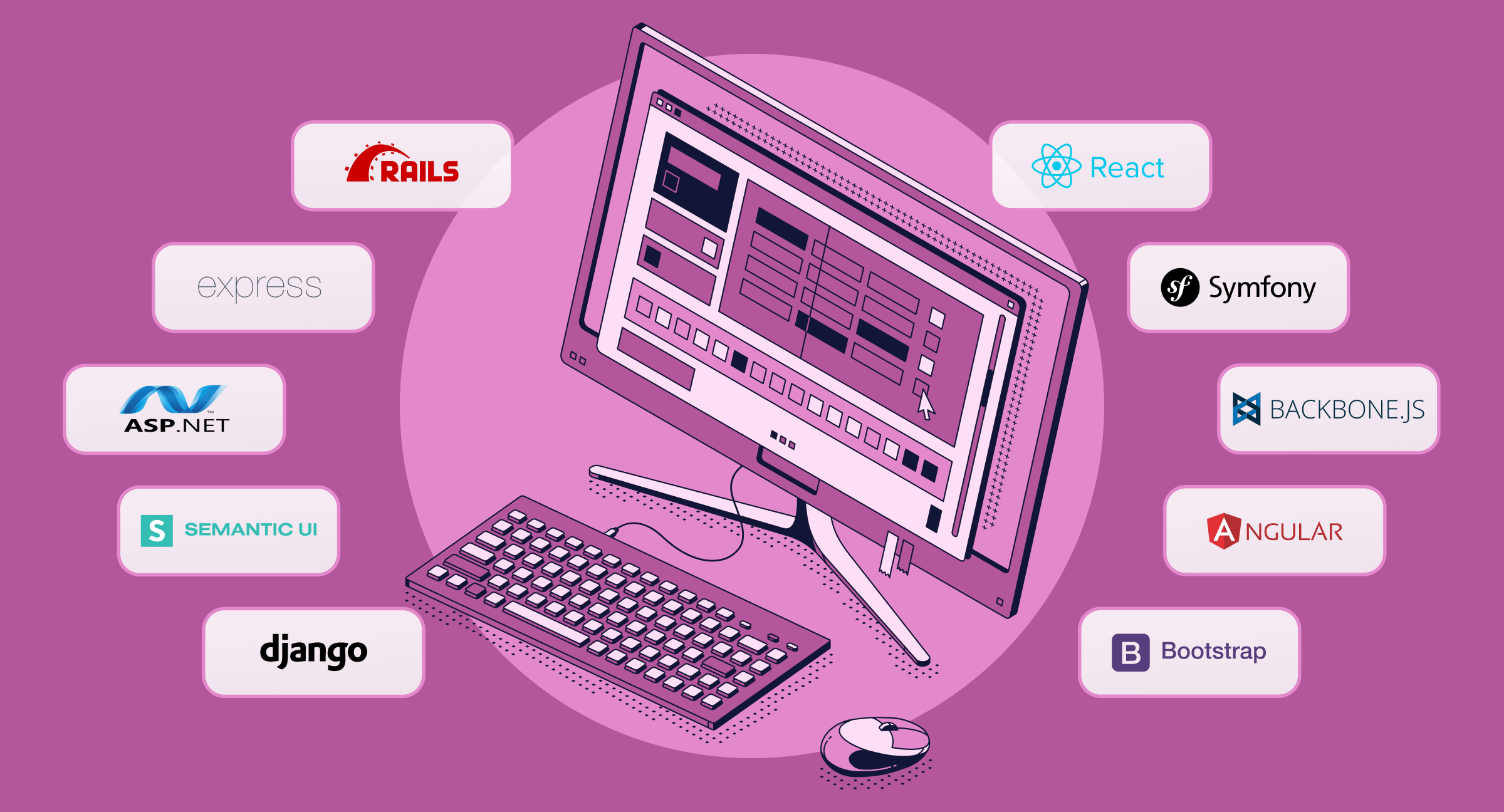
A web application is a program with specific functions that run through a browser. It can be used for a company’s internal business processes and working with clients. The second case allows users to order goods, pay for purchases, book rooms, leave reviews, etc.
The main advantages of web applications:
- Interact with any operating system and browser
- Do not require approval of a third-party platform to enter the market, as in the case of mobile applications
- Do not require installation on the device – people just need to know the URL of the app to interact with it
Now, let’s look at how a custom web app works.
How does a web application work?
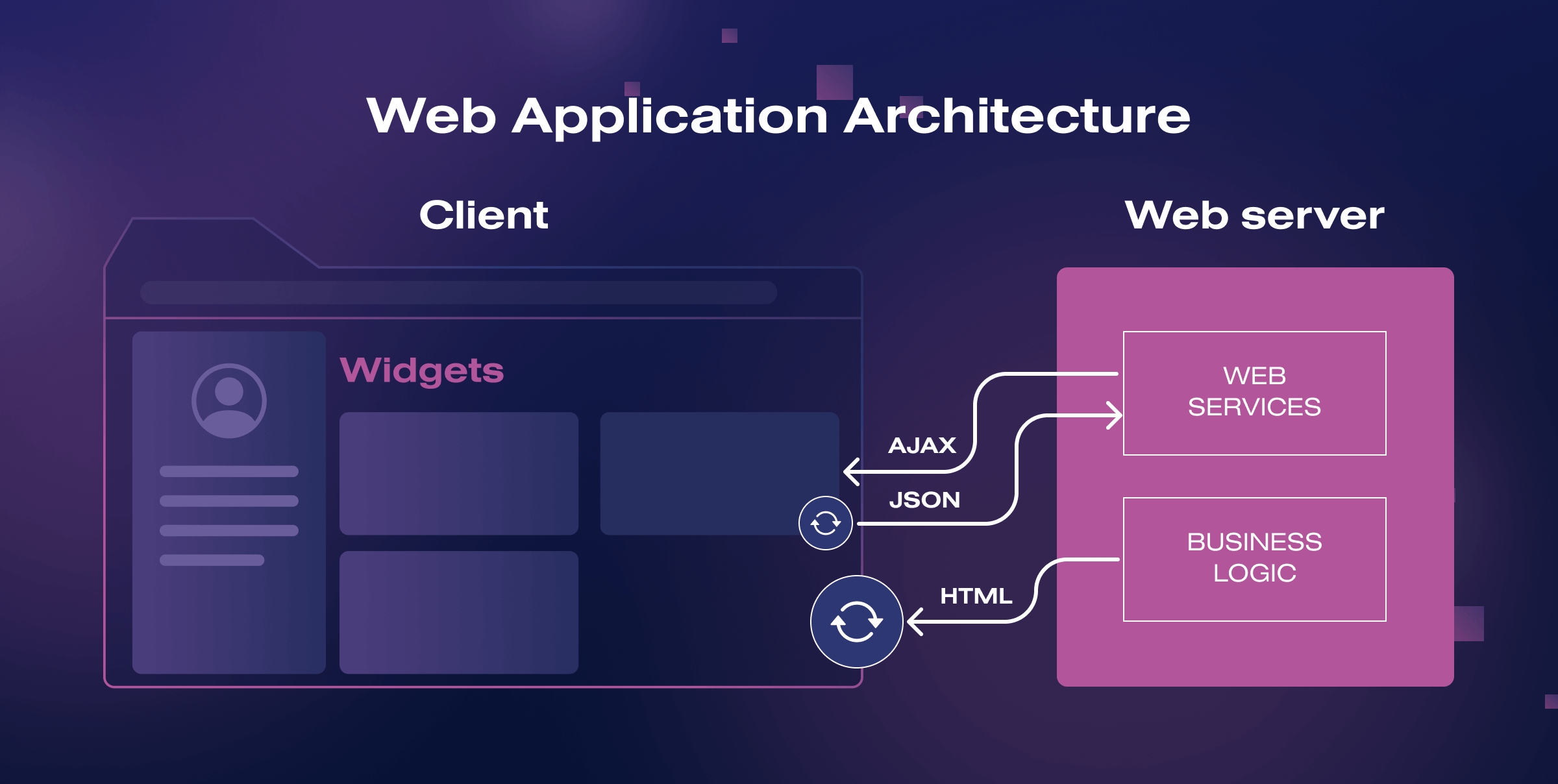
For example, a user forms a request to show a list of friends in a social network. This request is sent to the server where all the necessary data is stored. Once the server receives the request, it goes to the database and forms a response to the user’s request. After that, it sends the required information to his or her screen.
This is the principle of web applications work. However, it should be realized that the more complex the user’s request is, the more time it will take to generate a response. Therefore, the main task of all custom web applications is to ensure competent interaction between the server and the user and quickly generate ready web pages in response to the client’s request.
SoloWay Tech developers can create custom web apps to solve any business problem. We can take on any custom web app development stage, from testing an idea to developing and maintaining internal projects. If you want to shape a product that will reflect the company’s corporate identity and increase the trust of its users, our software development company can help you with it.
Web application vs. website: what is the difference?
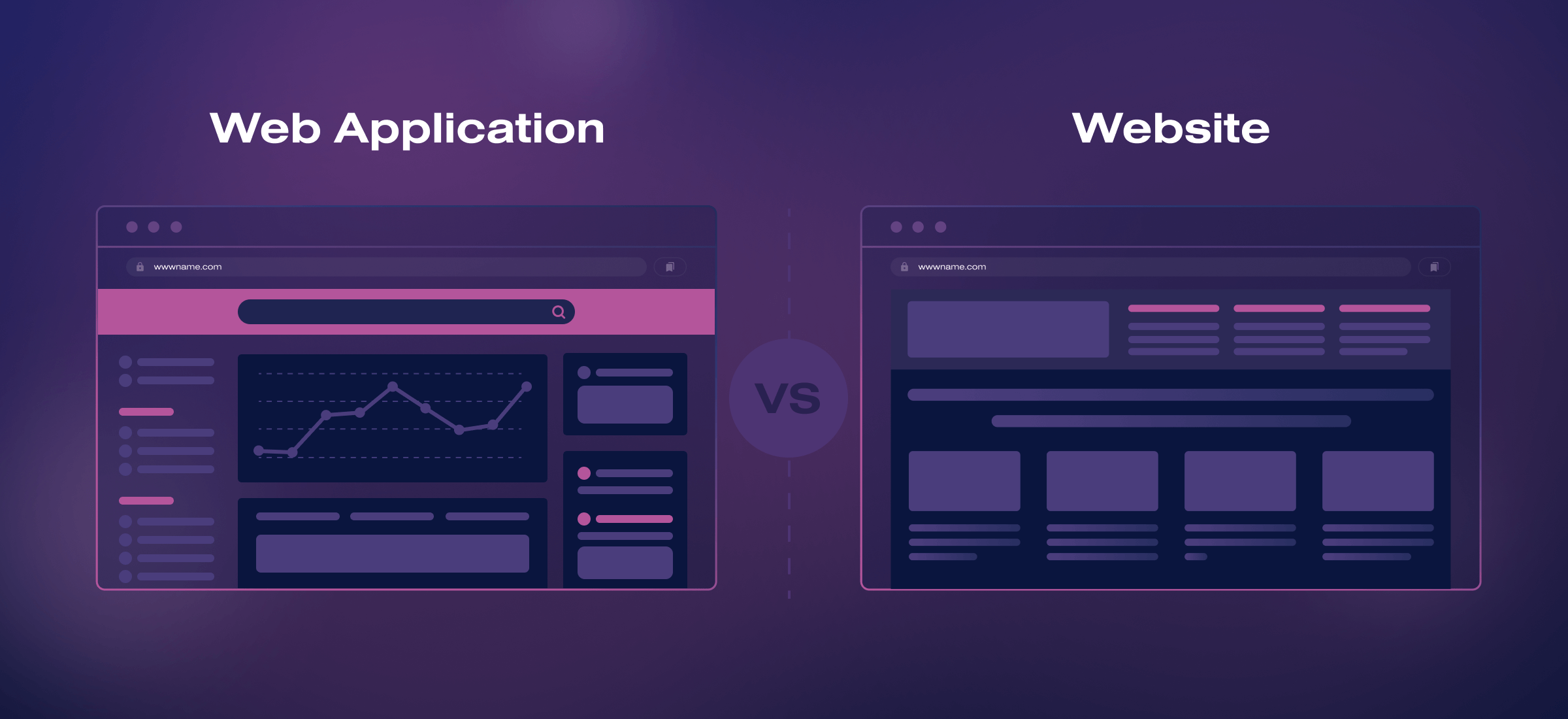
Don’t know the difference between a website and a web application? At first glance, these 2 concepts are the same, but the differences lie in the internal work and the creation of the project itself.
Website
This is one or more web pages that show the user informational content: articles, videos, pictures, and music. As a rule, this data is static, and the user cannot interact with it, i.e., change something on the page. Usually, the site is used to demonstrate products, tell about the brand, its history, and achievements, and publish useful case studies and articles. Often, authentication is not required here, meaning all information is available to every user.
Web application
It is a full-fledged program with extended functionality. It is the same website, with interactive elements that solve several client tasks simultaneously. Here, the user can already interact with the content and perform various manipulations within permissible limits: add information, communicate with other users, order goods, pay for purchases, and add or remove products from the cart. Therefore, an important point here is to register yourself as a user. Want to discuss your future custom web app? We are ready to help you!
Types of custom web applications

Now that we have figured out what a web application is, how it works, and how it differs from a website, let’s look at its types in terms of technical classification.
SPA (Single Page Application)
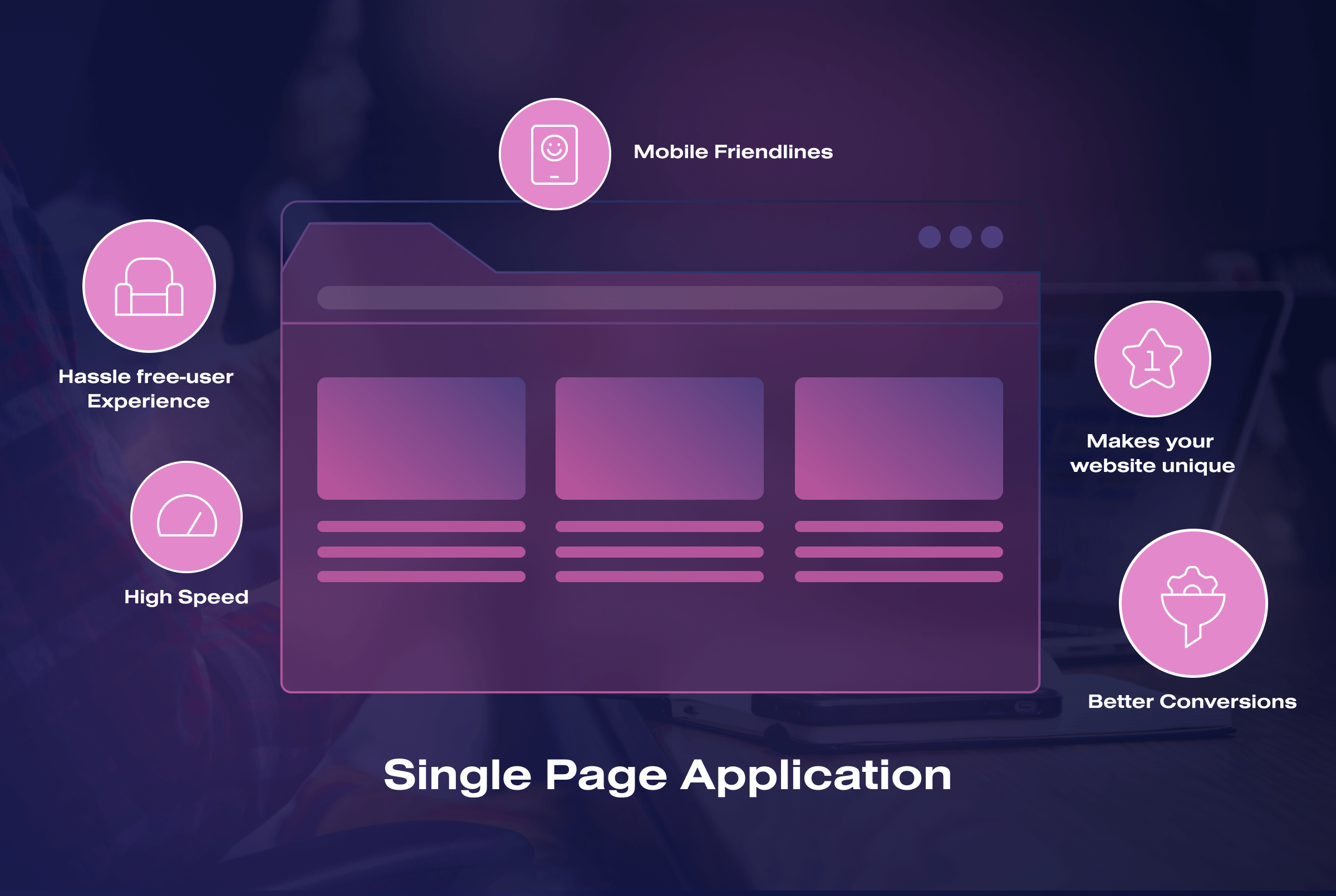
SPA is a single-page interactive application that does not require reloading the main page during operation. Unlike traditional web applications, they work faster because all the application logic is implemented in the browser, not on the server.
SPA pros:
- User-friendly interface. It is easier for the user to navigate on a single page when there is only one option for movement – down. No additional links will not distract his or her attention and will not allow him or her to get confused inside the program.
- High speed. During operation, the application does not update the entire page but only loads the content that the user needs. Therefore, it works much faster than multi-page sites. A request to the server is made once, after which the information on the page is simply supplemented.
- Data caching. The cache works similarly. It is enough to address the server once and save all the user’s data. Now, the client will be able to work in the application, even in offline mode.
Cons:
- Lack of SEO optimization. Unlike multi-page apps, single-page apps have just one URL that doesn’t change. Therefore, a developer can only bind one search query to it. Such sites are difficult to optimize for search engines because the additionally loaded information will simply not be found by the search bot.
- Poor security. Single-page applications are more susceptible to attack by hackers who steal user data using cross-site scripts. They inject them from the client side and can easily get sensitive information. MPA and PWA, which we’ll look at below, have a much better security setup.
SPA is suitable for various dynamic platforms with a small amount of information and not much need for SEO keywords.
MPA (Multi Page Application)
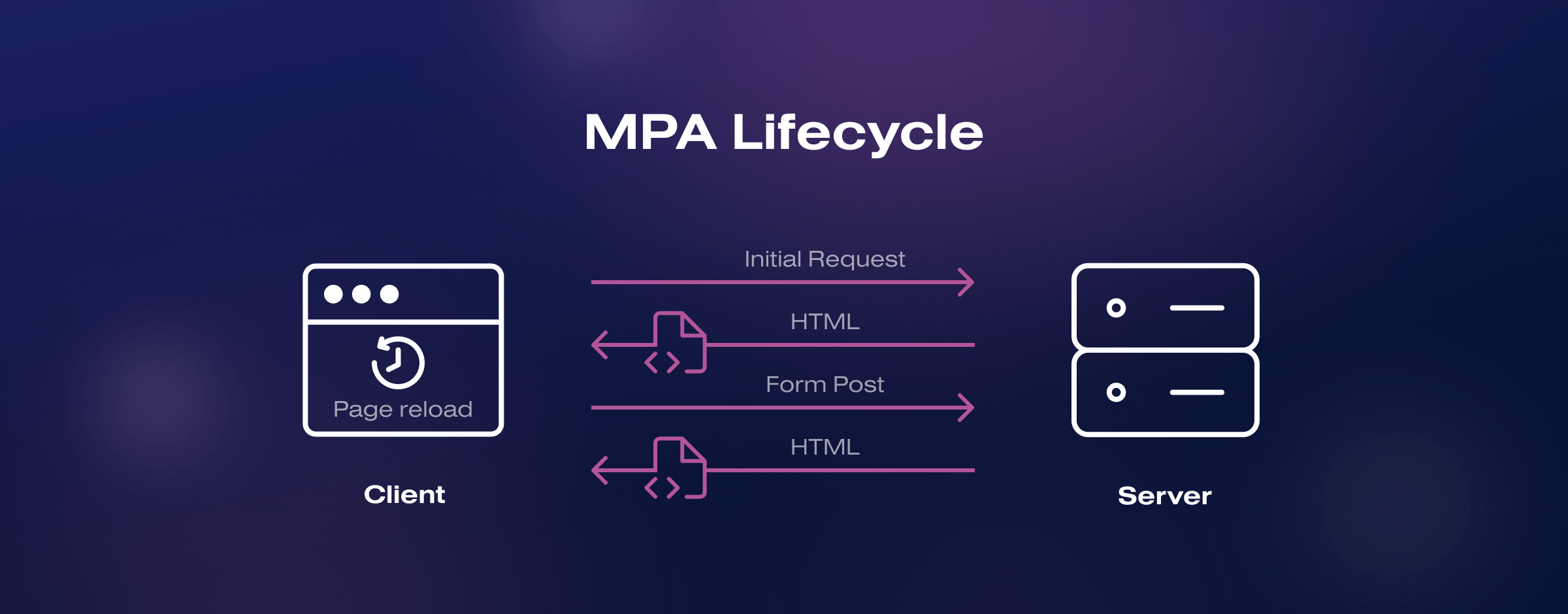
MPA allows the user to navigate between individual pages when making a query. These resources tend to have a more complex interface and many additional links. With each new request, such as paying for a product, the user will have a new page open.
MPA pros:
- Excellent SEO. Unlike SPA, MPA has each page with its URL, which gives excellent control over users’ SEO queries. You can add unique keywords and meta tags on each of them.
- Unlimited scalability. MPA does not limit you in the number of page creation and information placed on it. Unlike SPA, you can use many features on one page. Therefore, if your goal is more opportunities for the client, choose MPA.
MPA cons:
- Low speed. At each interaction with the application, the server reloads and updates all resources – HTML, CSS, scripts, and all page data. Therefore, the speed of waiting for a response to a request increases, which can negatively affect the application’s performance.
- More complex development. Creating such a custom application requires a full-fledged development of the server and front-end part of the program. All this takes much more time compared to SPA creation.
MPA is great for large companies that offer a wide range of services or products, online stores, catalogs, and trading platforms.
PWA (Progressive Web Application)
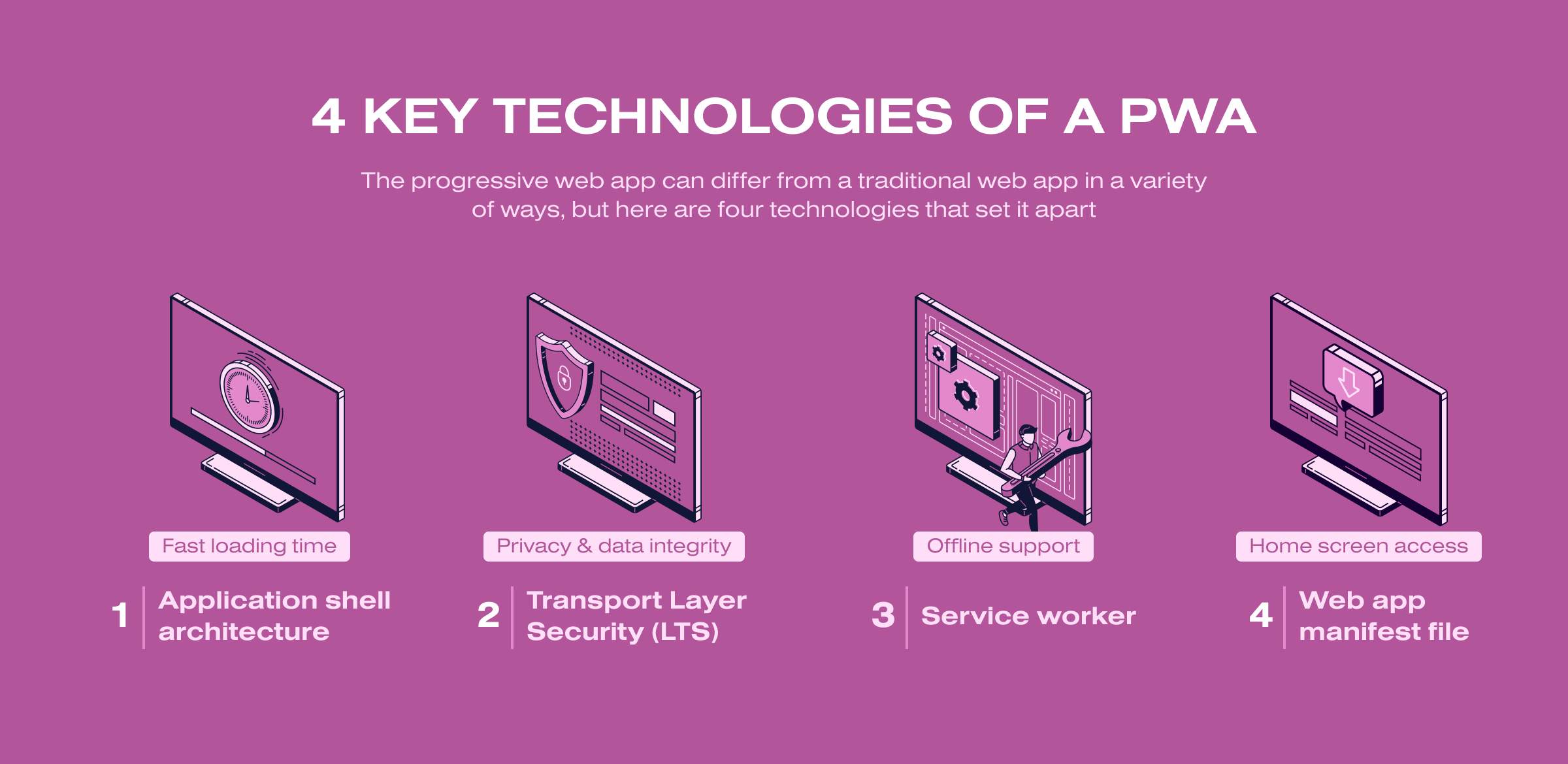
PWA is developed with the help of special technologies and can work without an internet connection. Such custom applications are available on all devices and adapt to any phone or computer screen width. People can install them on their smartphone’s home screen, send notifications, and use it as a full-fledged application.
PWA pros:
- Fast development. PWAs take less time to develop than native apps, making them more affordable.
- Optional installation. The custom app can be used directly through the browser without downloading from the app store. This means that developers won’t have to consider their rules when developing.
- Multiple devices. PWA is available in the browser on computers, phones, and tablets, significantly increasing user experience.
- Offline mode. Users don’t need to download the entire application every time. It can partially work offline.
PWA cons:
- Low performance. PWA is inferior in performance to native apps.
- No access to app stores. Before adding an app icon to their phone’s screen, the user must first be sure to visit this website.
PWA is suitable for controlling the work, increasing customer loyalty, and working for brand awareness. PWA is also great for service delivery services and online courses.
Custom web application types for business
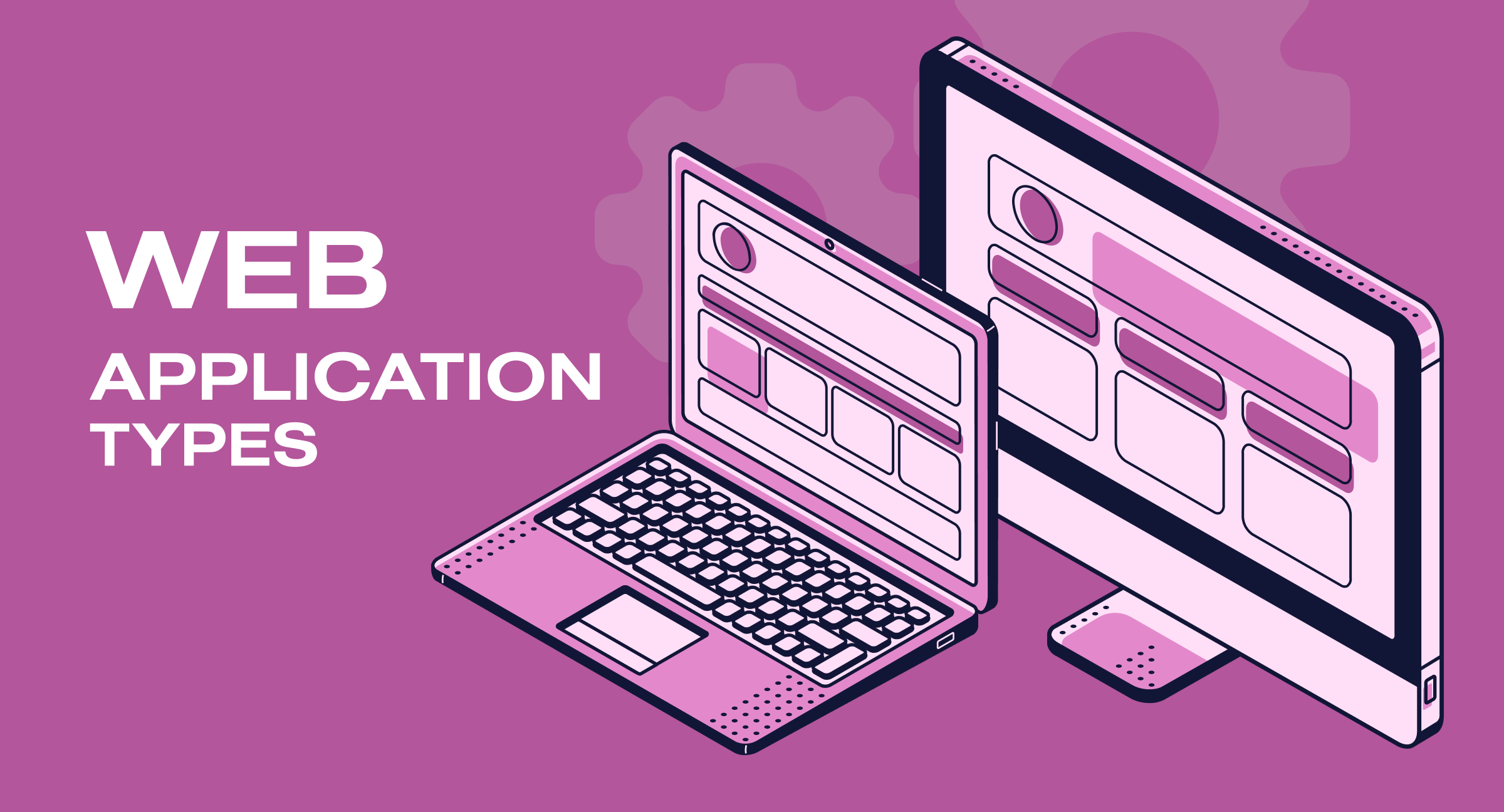
Four the most popular custom web applications for business:
- CRM systems. They are used to automate the company’s sales and interaction work with customers. With such a system, you can increase sales, optimize marketing, improve customer service, expose and control business processes, and analyze the results of your activities.
- E-commerce systems. Users use them to make purchases, sell goods, and transfer funds without the involvement of third parties. E-commerce includes online stores, marketplaces, courier services, B2B services/platforms, and more.
- ERP systems. They are used to manage business processes in the company, from sales to accounting. With its help, you can track the efficiency of each department and set appropriate tasks to improve it.
- Corporate portals. These web interfaces allow employees to see all corporate data of the firm. With its help, users can share information and various documents, change information, and work together on projects.
Developing a custom web application for your business is a great opportunity to achieve and realize all your ideas. Using a modern approach to its creation, you can improve business processes, increase sales, and control the efficiency of user interaction within the company. A competent team of specialists at SoloWay Tech will help you achieve a good result, make your brand recognizable, increase the loyalty of existing customers, and attract new ones.
How does custom web app development take place?
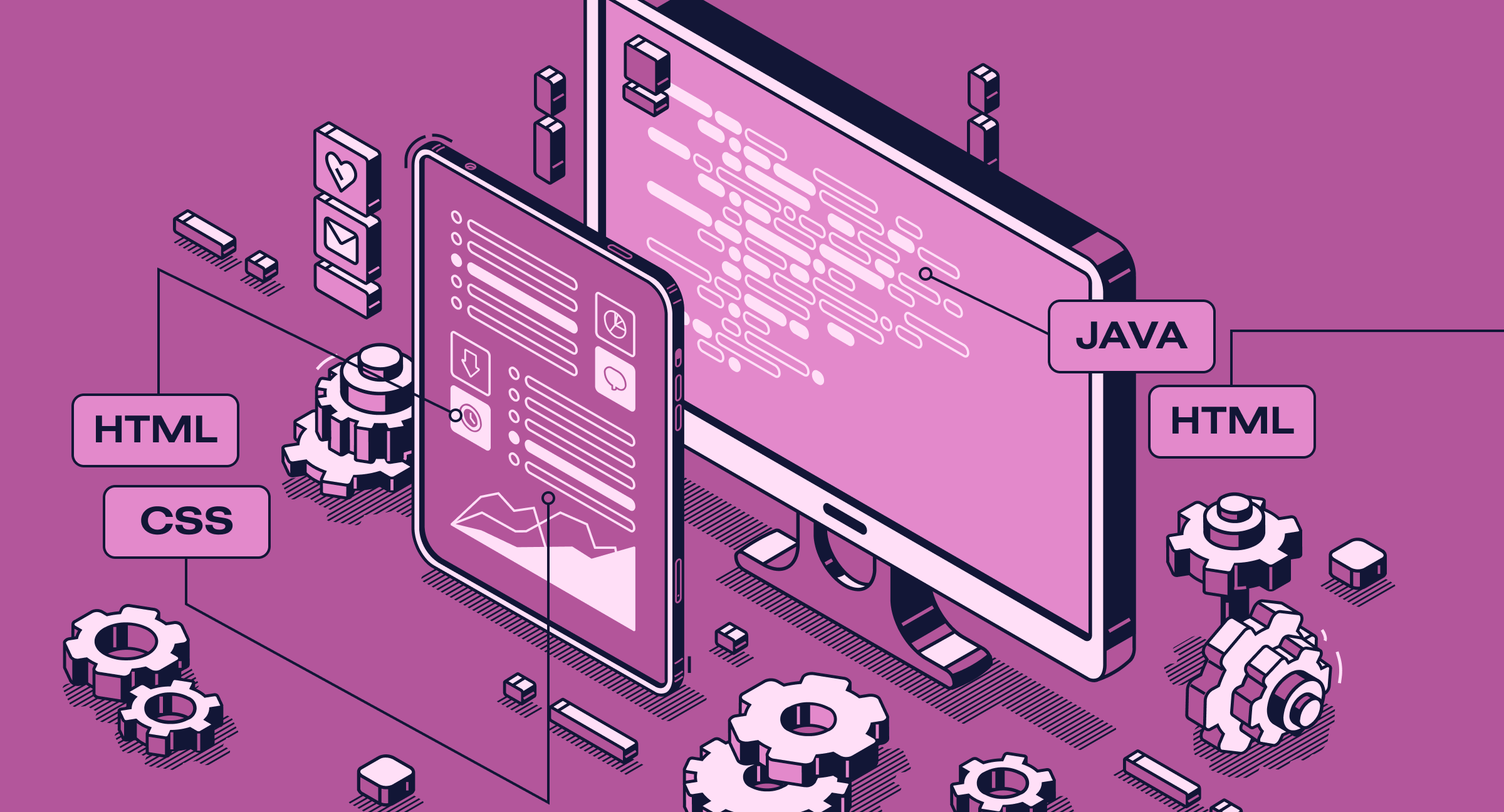
The development of a custom web application is as follows:
- Discovery phase. First, our development team scrutinizes the idea and options to achieve your goals. You get a detailed project assessment, considering all the features and deadlines. The analyst helps you to accurately estimate the timing and cost of the work and creates a detailed plan for each stage of development.
- Prototyping. After the discovery phase, the team creates a prototype – a rough draft of the future web application. With its help, you will get the basic version of the project and how the user can interact with it.
- Design. The development team selects the color scheme and develops the corporate identity of the custom web application. At this stage, our development team forms the appearance of the product elements, considering all the requirements and peculiarities of your users’ perception.
- Development and testing. The main part of the development team’s work is writing the code and implementing the necessary functions. At each stage, the application is tested. Ensuring all elements work stably and fulfill their main functions is important.
- Support. Once the custom application has been successfully tested and released to the market, you need someone to maintain it, refine existing features, or add new ones. All this occurs based on your business objectives and analysis of the effectiveness of user interaction with the custom web app.
At SoloWay Tech, we can help you develop custom web apps of any complexity, as we have over 15 years of experience working on over 800 projects.
Conclusion
So, custom web application development offers a world of possibilities for businesses looking to thrive in the digital age. As we’ve explored in this article, the diverse range of web application types available caters to various business needs and objectives.
Custom web applications empower businesses to stay competitive, enhance efficiency, and provide exceptional user experiences. They enable you to tailor your online presence to precisely match your brand and cater to your target audience, fostering loyalty and trust.
However, it’s essential to remember that successful web application development is a collaborative effort that requires expertise and dedication. Choosing the right development team, technologies, and strategies is crucial for achieving your desired outcomes. Want to discuss your custom web app development? Contact us right now!




